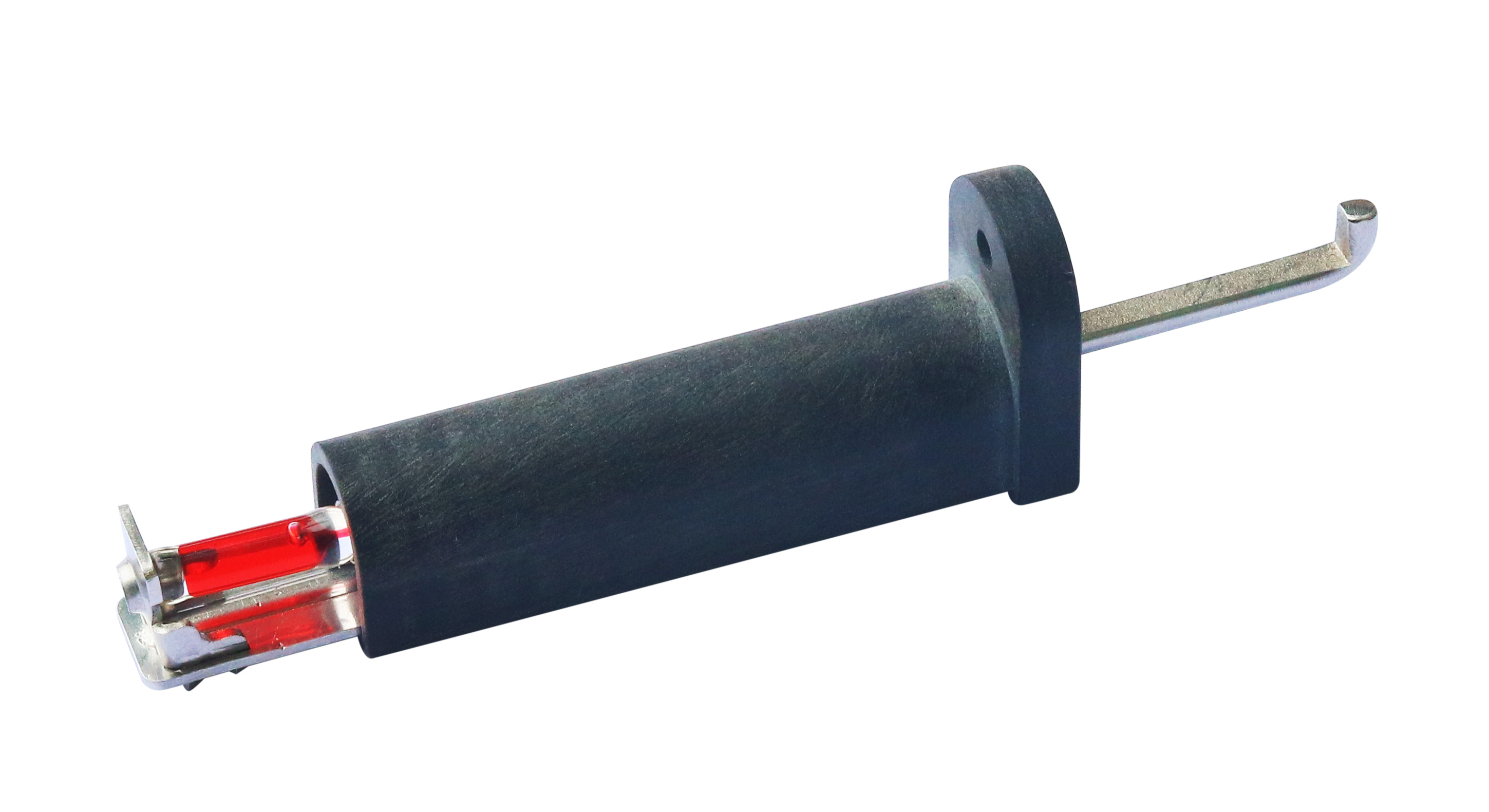

These mechanical thermal actuators are intended to close the fire dampers used on the ventilation ducts. Their large operating force unlocks the spring actuating the damper. Requiring no power supply, these devices are particularly simple and reliable. They are mandatory for all fire dampers to meet the NF-S 61.937 standard. Since thermal bulbs are not subject to creep, their periodic replacement is not necessary.
Straight length (A) of the actuating rod before release: 30mm or 25mm
Stroke of the actuating rod when triggering: ≥ 20 mm
Traction force of the actuating rod: ≥ 15 DaN (at the beginning of the stroke).
Orientation of the actuating rod bending: Aligned with the axis of the fixing screw. Other possible orientations: every 15° angular (MOQ apply)
Communication with the external environment: The mechanisms are equipped with a low leakage wall, separating the air of the ventilation duct from that of the external environment.
Installation: Through the wall of the ventilation duct, with M4 screws or self-tapping screws of similar dimensions. See the metal sheet cutting drawing above.
Body material: PA66 glass fiber reinforced, withstands temperature 200 ℃.
Mechanism material: Stainless steel Aisi 304.
ROHS compliance: These mechanisms are ROHS compliant.
Identification: Model and date of manufacture are stamped on each mechanism. When equipped with a thermal bulb, it has its own color identification (see the data sheets of the thermal bulbs).
Salt spray resistance: According to ISO 9227-2012, subjected to a mist formed of 20% by weight of sodium chloride in distilled water, at 35°C for 5 days (120h), the mechanisms retain their aptitude for the function.

